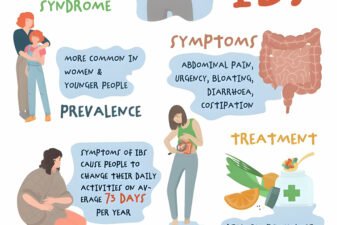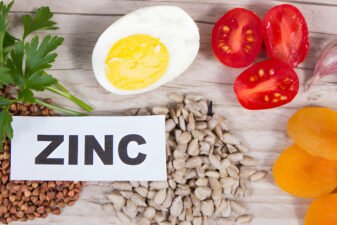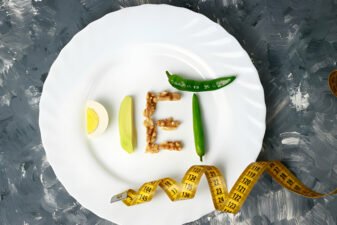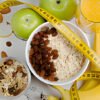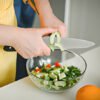Soluble fiber supplements may be beneficial for anyone with irritable bowel syndrome, although some common sense precautions are advisable.
- First, I recommend consulting a dietitian before using them.
- Second, supplements should not be used as the main source of soluble fiber in your diet: as the name suggests they should “supplement” not replace, the dietary fiber in your daily meals.
- Third, when choosing a particular brand of fiber supplements it may be best to choose a plain, unflavored supplement instead of a citric acid variety. Also, you should know that sugar-free versions may contain artificial sweeteners, which can trigger IBS attacks.
- Fourth, follow manufacturer’s instructions carefully and drink a large glass of water with each dose, and throughout the day as well.
- Fifth, not everyone with irritable bowel disease benefits from fiber supplements. As a rough guide, if you don’t experience a definite improvement in symptoms within about 7 days (in the case of diarrhea) or 14 days (in the case of constipation) when using close to the maximum dosage, then supplements are unlikely to work. Alternatively, it may suggest that you are not suffering from IBS. In any event, please talk to your doctor or dietitian.
IBS and Fiber: Summary
1. Include regular amounts of soluble fiber-rich foods in your diet.
2. If tolerable, include regular amounts of healthy whole grain or whole foods containing insoluble fiber (like fruits and veggies), but take precautions. Don’t eat insoluble fiber alone. Don’t eat it on an empty stomach. Always eat it with a larger quantity of soluble fiber. The best way to prepare insoluble fiber foods like vegetables, nuts and fruits is to peel, chop, seed, dice, before cooking and if necessary blend/puree before eating.
3. Drink plenty of water (about 12 glasses of water, a day) and take regular exercise.
4. Consult your doctor or dietitian about soluble fiber supplements.



